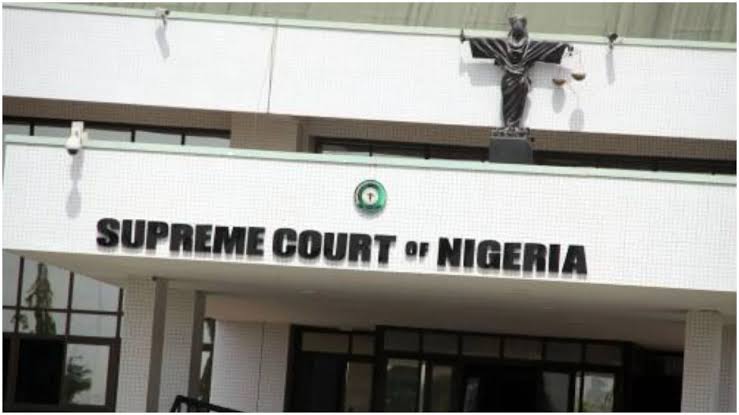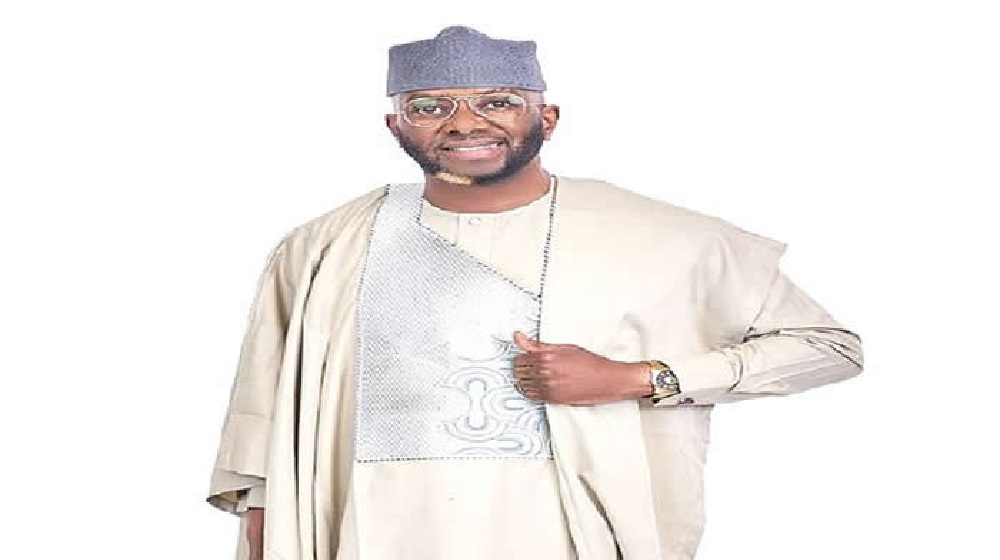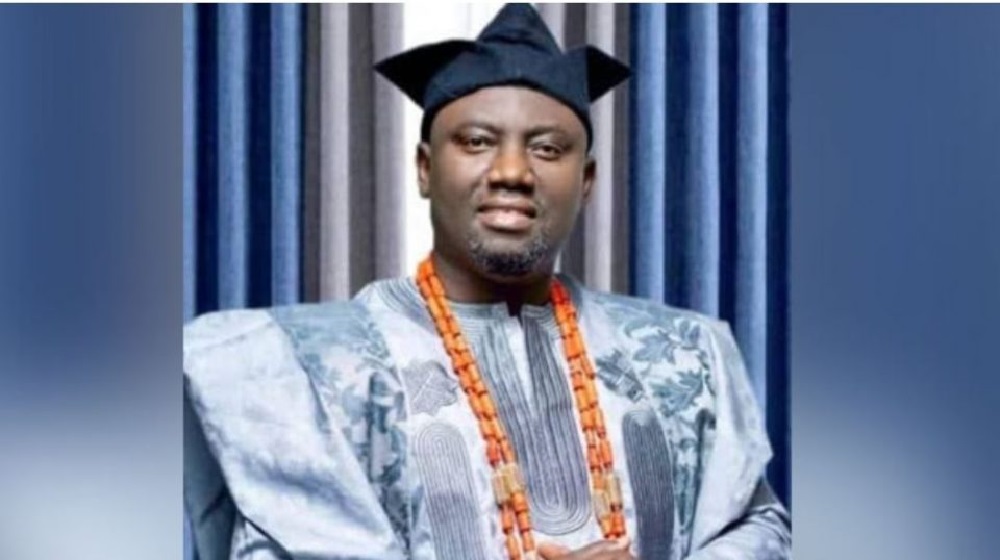News
Supreme Court to rule on 16 govs’ suit against EFCC today

Following the suit filed by the 19 state governments contesting the constitutionality of the laws that established the Economic and Financial Crimes Commission in the country, the Supreme Court is set to rule on their request today.
The governors and the EFCC are eagerly awaiting the judgment of the apex court, which would confirm the legality or otherwise of the anti-graft commission.
The state governments, in their suit, had argued that the Supreme Court, in Dr Joseph Nwobike Vs Federal Republic of Nigeria, held that it was a United Nations Convention against corruption that was reduced into the EFCC Establishment Act and that in enacting the law in 2004, the provision of Section 12 of the 1999 Constitution, as amended, was not followed.
They argued that in bringing a convention into Nigerian law, the provision of Section 12 must be complied with.
According to the plaintiffs, the provision of the Constitution necessitated the majority of the states’ houses of assembly agreeing to bring the convention in before passing the EFCC Act and others, which was allegedly never done.
The argument of the states in their present suit, which had reportedly been corroborated by the Supreme Court in the previous case mentioned, is that the law, as enacted, could not be applied to states that never approved of it, in accordance with the provisions of the Nigerian constitution.
Hence, they argued that any institution so formed should be regarded as an illegal institution.
The suit was initiated by the Kogi State government and joined by the Ondo, Edo, Oyo, Ogun, Nasarawa, Kebbi, Katsina, Sokoto, Jigawa, Enugu, Benue, Anambra, Plateau, Cross-River and Niger.
A seven-member panel of justices, led by Justice Uwani Abba-Aji, on Tuesday, fixed October 22 for a hearing.
The EFCC, however, expressed dismay over the call for the overhaul of their institution, stating that those pushing for such are “feeling the heat of its work.”
The EFCC’s Director of Public Affairs, Wilson Uwujaren, disclosed this in an interview on Channels Television’s The Morning Brief programme on Monday.
Uwujaren defended the significance of the commission, stating that Nigerians needed to fight against corruption.
“We are shocked by what is happening. Nigerians should see through this shenanigan and oppose it because I don’t see how this country can survive without the EFCC, given the kind of corruption problem that we have. Nigeria cannot do without the EFCC.
“I am worried that, with the kind of problem we have with corruption in this country, some people would go to court to challenge the legality of the EFCC.
“For citizens in their states, I am not sure that the EFCC is their greatest problem. I doubt that this is the case. What you see playing out is simply people who are feeling the heat of the work of the EFCC and who want to derail what is going on within the EFCC.
“They see the EFCC as a threat, which is what is playing out. I think Nigerians can see through the gimmick of those who are behind the challenge to the legality of the commission,” Uwujaren said.
The EFCC official noted that those behind the call for the overhaul were determined to “derail” the commission’s anti-corruption fight.
“So, people who are concerned about transparency and accountability will wish for the EFCC to be ‘killed’. Let me use the word ‘killed’ because that is the agenda.
“They simply want to derail the fight against corruption because they don’t want accountability in their domains,” he said.
Meanwhile, lawyers and Senior Advocates, Dr Olisa Agbakoba and Femi Falana, have expressed divergent views on the constitutionality of the EFCC.
Agbakoba, a former President of the Nigerian Bar Association, wrote to the National Assembly about constitutional issues related to law enforcement agencies in Nigeria and factors inhibiting the government’s objective of abolishing corruption, as stated in Section 13 of the Constitution.
In two separate letters to the Senate and House of Representatives, dated October 14, 2024, he stated that the EFCC was an unlawful organisation that he believed was “unconstitutionally established.”
He said, “I very strongly believe the EFCC is unconstitutionally established. The powers under which it was established go beyond the powers of the National Assembly. The EFCC is an unlawful organisation.”
However, three days later, Falana, a human rights activist, in his letter to the National Assembly, opposed Agbakoba’s view.
He insisted that the former NBA president’s position was based on the premise that the establishment of the EFCC violated the basic principles of federalism.
The Executive Director of Africa Center for Media Information and Literacy, Chico Onumah, reacting to the suit, noted that there is nothing unconstitutional about EFCC as the laws that brought about its existence went through due process.
“The commission was set up by an Act over two decades ago and I don’t imagine that there is anything wrong with that.
“As far as I know, the laws that led to the setting up of the commission went through the due process.
“The EFCC I know is a legal institution, the laws that set it up are there like ICPC and it went through the normal process. What is unconstitutional about EFCC? The constitution empowers the National Assembly to pass laws like this so I don’t see anything unconstitutional about this.
“They are legal institutions and I see nothing unconstitutional about the anti-corruption agencies,” he said.
Speaking further he noted that the EFCC had been doing its fair share in the fight against corruption, even though there was room for improvement.
“They have been able to fight corruption. You can’t imagine where we are coming from and where we are today. Corruption is one of the biggest challenges in this country and whether we like it or not, these agencies have contributed their quotas.
“Of course, there’s room for more to do better but within the limited resources and manpower, I think they’ve done fairly well,” he added.
The Deputy Director of the Socio-Economic Rights and Accountability Project, Kolawole Oluwadare, stressed that the functionality and constitutionality of EFCC were not in doubt.
He said, “The constitutionality of the EFCC is not in doubt. The functionality of EFCC as an anti-corruption agency is also not in doubt.
“If the legal argument was made four years ago on the constitutionality of EFCC, the question that Nigerians who are interested in the transparent and economic growth of Nigeria on the state governors suit is to ask what is the end game and what are they afraid of?”
The Executive Director of the Civil Society Legislative Advocacy Centre, Auwal Rafsjani, condemned the state governments’ action, stating that the suit threatened not only the fight against corruption but also the autonomy of local governments—a fundamental pillar of grassroots democracy.
He said, “The recent legal battles waged by these governors represent a blatant disregard for the rule of law and an attempt to undermine Nigeria’s progress in establishing institutions that hold public officials accountable.
“This calls for deep concern and unequivocal condemnation of the recent actions of some state governors targeted at EFCC, Nigerian Financial Intelligence Unit and by implications other anti-corruption agencies in the country, such as the Independent Corrupt Practices and Other Related Offences Commission, the Code of Conduct Bureau and key law enforcement agencies like the Nigeria Police Force; preparatory to the commencement of full implementation of the recent Supreme Court judgment with regards to local government autonomy in Nigeria.”
News
FG to partner UN to lift Nigerians out of poverty

The Federal Government has reaffirmed its commitment to partner with the United Nations to provide long-lasting solutions to help lift millions of Nigerians out of poverty.
The Minister of Humanitarian Affairs and Poverty Reduction, Prof. Nantawe Yilwatda, disclosed this on Friday while fielding questions from newsmen in Abuja.
He disclosed it shortly after his meeting with Amina Mohammed, the Deputy UN Secretary-General.
Yilwatda said that the UN had been a longstanding ally of the ministry and had helped government in actualising some of its social intervention programmes.
The minister said that the partnership became necessary to drive the Federal Government’s Renewed Hope Agenda in addressing youth unemployment, poverty reduction, and support to victims of conflict and climate change.
“We have the opportunity to partner with the UN to ensure that the people affected by insurgency, climate change and other armed conflicts across the country are supported.
“Especially, those that are affected by the impact of economic reforms that we are making to ensure that we give human face to every aspect of the reforms.
“This partnership is going to ensure that we give durable solutions to the plight of our people.
“It will ensure that we lift as many people as possible out of poverty, reduce youth unemployment and ensure that our communities are safe,” he said.
Yilwatda noted that the ministry would soon release its 2025 Humanitarian Response Plan to provide Nigerians with a guide to government’s drive towards addressing poverty in the country.
“We are going to unveil our Humanitarian Response Plan in weeks to come, which will be the need assessment of all the humanitarian problems and challenges across the country.
“Together with the UN, we will work around the world globally to raise funds for the country using that Humanitarian Response Plan.
“Also, within the first quarter of the year the Durable Solution Plan and programme that we are doing will also come to effect.
“I am sure Mr President who is willing to ensure poverty reduction has provided a lot of funding for the safety net, especially, if you check the proposed 2025 Budget, you’ll discover that there are a lot of funding provided for safety nets.
“These are also verifiable plans by the government to ensure that they participate along with the UN in reducing poverty and providing a safety net for the poorest of the poor,” he said.
Yilwatda said that the ministry had a target to create at least two million jobs before the end of the year 2025.
In her response, the UN Deputy Secretary-General assured the federal government of its readiness to partner in addressing the multi-dimensional poverty in the country.
Mohammed said that the ministry was critical to UN’s mission to ensure that people and communities are safe and lifted out of the poverty line.
“People are on the move today, different crisis, it’s climate, it’s conflict, it’s internal displacement through different hardships.
“So that makes this ministry a focal place for providing prevention and dealing with the solutions to humanitarian crises.
“The indices of poverty in the country are high.
“So, when host communities come in, you have to accommodate them as well so that you don’t have the burden of those coming in and creating social tensions,” she said.
Mohammed emphasised the need for more investment in social intervention to address the growing humanitarian needs in the country.
“Huge investment is needed in the country, so that we can have those transitions that will make us more resilient,” she said.
NAN
News
Fayose’s brother joins Ekiti governorship race

Emmanuel Fayose, a younger brother to the former governor of Ekiti State, Ayodele Fayose has declared his interest to join the governorship race in the state.
In a statement made available to journalists on Friday, January 10, 2025, the younger Fayose said he has resolved to join the gubernatorial contest in the state.
A member of the Peoples Democratic Party, Emmanuel said his ambition stems from his desire to transform the state and return it and the people to the path of development.
Emmanuel said, “I am in the race to dislodge the Oyebanji-led government, and eventually, if I win, I will run an inclusive government that would steer Ekiti in the right direction.”
The PDP chieftain also noted that in addition to the need for the state to redress its steps, he was spurred to contest for the governorship seat following a recent meeting between President Bola Tinubu and his brother, a former Ekiti governor.
According to Emmanuel, the president at the meeting former governor Fayose had told President Tinubu of his intention to support the current administration which has been frowned at by his fellow party members.
News
Oyo kingmakers reject Owoade’s appointment as Alaafin

Kingmakers in Oyo Town have rejected the appointment of Prince Abimbola Owoade as the new Alaafin by Governor Seyi Makinde, describing it as illegal and unlawful.
It would be recalled that earlier on Friday, the state government announced that Makinde had approved the appointment of a new Alaafin of Oyo, two years after the stool became vacant.
However, five kingmakers from the town have declared the appointment null and void, claiming that they did not recommend such a name to the state government, insisting that the only person they recommended as the next Alaafin is Prince Luqman Gbadegesin.
The kingmakers, who made this declaration in a letter to the governor signed by their legal representative, Adekunle Sobaloju (SAN), include High Chief Yusuf Akínade, Bashorun of Oyo; High Chief Wakeel Akindele, Lagunna of Oyo; High Chief Hamzat Yusuf, Akinniku of Oyo; Chief Wahab Oyetunji, warrant chief stand-in for Asipa of Oyo; and Chief Gbadebo Mufutau, warrant chief stand-in for Alapinní of Oyo.
“You will recall that on 30th September, 2022, at the meeting of the kingmakers in accordance with the Alaafin of Oyo Chieftaincy Declaration, 1961, the kingmakers appointed Prince Lukman Adelodun Gbadegesin as the Alaafin of Oyo by a majority of the lawful votes of the kingmakers.
“Prince Lukman Adelodun Gbadegesin, having obtained the majority of votes from the kingmakers present and voting, was deemed appointed, and his name was forwarded to Your Excellency as the candidate appointed by the kingmakers as Alaafin of Oyo for your approval, which you refused to approve for no disclosed reason at all. The kingmakers thereafter filed an action to stop Your Excellency from truncating the process, culminating in the present appeal at the Court of Appeal,” the letter read.
They noted that they were surprised that, in the announcement by the government, it claimed that the selection was made after wide consultation and divination.
“We must emphatically state that the Alaafin is not chosen by consultation or divination but in strict compliance with the Registered Alaafin of Oyo Chieftaincy Declaration of 1967, which codifies the native law and custom governing the selection process for the vacant stool of the Alaafin.
“Under the Registered Alaafin of Oyo Chieftaincy Declaration of 1967, it is only the Bashorun of Oyo, the head of the Oyomesi and kingmakers, who can summon a meeting of the kingmakers for the purpose of selecting a candidate to fill the vacant stool of the Alaafin of Oyo. In this instance, the Bashorun did not summon any such meeting, nor was there any meeting convened in the Alaafin’s palace, as custom demands, where the said Prince Abimbola Akeem Owoade was selected or appointed as the new Alaafin.
“Any meeting of a few kingmakers and emergency warrant chiefs held at the Governor’s office on the 9th of January, 2025, or elsewhere at the instance of the Commissioner for Local Government and Chieftaincy Affairs, to select the preferred candidate of the Governor as the new Alaafin is not only contrary to the native law and custom and Chieftaincy Declaration of the Alaafin of Oyo Chieftaincy but unlawful, illegal, invalid, null, and void.
“It is not the duty of the Governor to convene the meeting of a few kingmakers and emergency warrant chiefs to select or appoint a new Alaafin on the 9th of January, 2025, and hurriedly approve the appointment on the 10th of January, 2025,” they added.
-

 Metro24 hours ago
Metro24 hours agoInsecurity: security operatives waste notorious bandit leader
-

 News23 hours ago
News23 hours agoCourt freezes Nduka Obaigbena’s assets in commercial banks
-

 News22 hours ago
News22 hours agoNigeria begins implementation of agreements with China – Minister
-

 News22 hours ago
News22 hours agoAfenifere demands concrete action from S’West governors on banditry
-

 News22 hours ago
News22 hours agoAmaewhule’s Rivers Assembly overrides Fubara on three bills
-

 News23 hours ago
News23 hours agoOkiro withdraws from Ohanaeze Ndigbo presidency race
-

 Foreign24 hours ago
Foreign24 hours agoGen Joseph Aoun emerges president of Lebanon
-

 News23 hours ago
News23 hours agoCourt summons interior minister, AGF over planned expatriate tax policy








